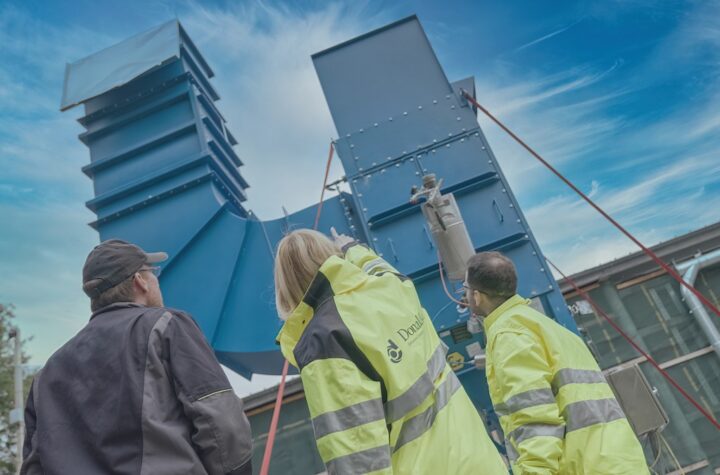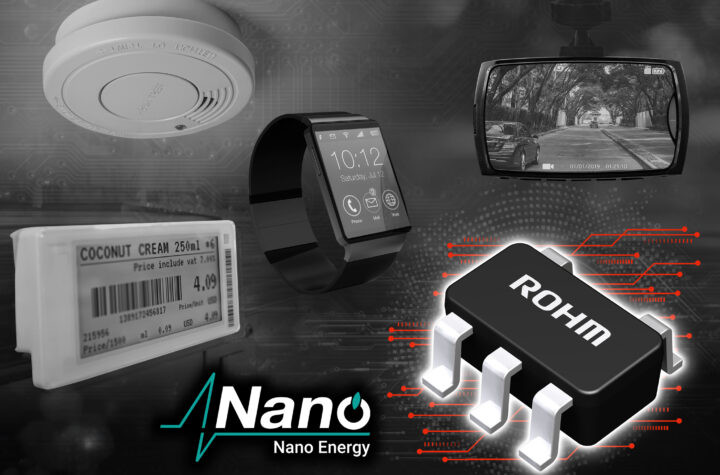Advances in plastics are allowing designers to push the barriers through a growing number of applicatiions. High performance plastic materials are used in a wide spectrum of applications – from children’s toys to industrial gears, from tiny optical components to large automotive body parts. Automotive Industries examines some of the new applications.
Fuel-saving coolant pump
An electric coolant pump saves up to half a liter of fuel per 100 kilometers is being fitted to BMW’s new six-cylinder engines for the 3, 5 and 6 series.
The electric water pump from Pierburg uses only 200 Watts of power compared to the usual two kilowatts, because it is independent of engine speed and only reacts to the actual cooling requirement, according to Albert Genster, electric coolant pump development manager at Pierburg.
The Neuss-based supplier succeeded in avoiding many of the inherent disadvantages of mechanical pumps through the incorporation of sophisticated new electronics and Fortron PPS high performance plastic. The polyphenylene sulfide polymer is used to produce the so-called “canâ€, a hermetically sealed fluid compartment, and internal pump components.
Conventional automotive coolant pumps have serious disadvantages, according to Genster. Seals in conventional pumps are prone to wear over the service life of the vehicle. In addition, conventional pumps are relatively heavy consumers of engine power. The rotor of the new Pierburg electric motor is placed in a hermetically sealed fluid compartment, known as a “canâ€. “So parts prone to wear, such as rotary seals and V-belts, have become obsolete,†says Genster.
Besides the sophisticated electronics, another important requirement for operation of the pump is a material that will withstand the demanding service conditions. Pierburg selected Fortron 1140 L6 for the 7.5 cm-long can. In this application, the high-tech polymer must cope with operating temperatures varying between minus 40 and plus 140 degrees Celsius and an internal pressure of up to three bar. In addition, the circulation of glycol-containing water requires high chemical resistance, even at temperatures of up to 130 degrees Celsius.
“It was also important for us to find a material with an extremely long service life,†emphasizes Genster. By employing the canned-pump principle, the new electric pump is very safe and reliable to operate, with low susceptibility to wearâ€.
Fortron
Fortron PPS, the Ticona polyphenylene sulfide, is a linear, semi-crystalline, high-performance plastic. It can be modified with reinforcing materials such as glass fibers or glass fiber/mineral blends.
With its inherent flame retardancy and high hardness and rigidity, it is specially suitable for the manufacture of semi-finished products, moldings and films. Continuous service temperatures up to 240°C are possible. Reinforcement with glass fibers lowers the thermal expansion coefficient to values that are typical of metal. As a result, Fortron is ideal for hybrid assemblies of metal and plastic components. PPS is also characterized by very good chemical and oxidation resistance, minimal water absorption and low creep, even at elevated temperatures.
Sensitive cars
Some regulate fuel supply. Others protect passengers in a crash: no new car goes anywhere today without sophisticated sensors. In the automobile segment alone, market experts forecast annual market growth of 11%. Expected total volume in 2010: ten billion dollars US.
And the sensors are getting smarter. A new pressure sensor, for example, measures barometric air pressure in the range of 400 to 1500 hectopascals. The actual atmospheric pressure is taken into account when adjusting the fuel mixture. That lowers consumption, optimizes the engine’s performance profile and helps keep the environment clean. Other pressure sensors cause airbags to release on impact. In this case the sensors react to changes in pressure resulting from deformations that occur in an accident.
At the heart of the sensors lies a measurement cell with a silicon chip. To protect and insulate this chip, chip manufacturers use Vectra 130 i. The polymer from Ticona enables lead-free reflow soldering by protecting the sensitive chip from temperatures in the region of 260 degrees Celsius required by this process. During the soldering process, the components are subjected to these extreme conditions for up to 15 seconds. Thanks to Vectra’s high temperature resistance, sensor manufacturing can be integrated cost-effectively into fully automated SMD (Surface Mounted Device) pick and placement operations.
Owing to its good dimensional stability and low thermal expansion coefficient, the polymer can also be processed with exceptionally high precision and nearly burr-free. This reduces warpage and dimensional changes to a minimum, ensuring the reliability of the sensor. A further advantage: the extremely high-flow liquid crystal polymer easily fills long, thin and complicated flow paths, while holding the tendency to warp to an absolute minimum.
Extremely popular sensors
Performance, convenience and reliability all register near the top of the sensor popularity scale – and not just for chip manufacturers and automakers. Above all it is the drivers who have become so rapidly accustomed to the tiny, invisible companions – and who appreciate the comfort of their sensitive cars.
Vectra LCP
Liquid crystalline polymers consist of rigid, rod-like macromolecules which align in the melt to produce liquid crystal structures. Important properties of these polymers include: continuous service temperatures up to 240°C (short-term up to 340°C), very low melt viscosity, flash-free injection molding, very high tensile strength and very high elastic modulus in the flow direction, high impact strength and inherent flame retardancy. The range of Vectra LCP injection molding grades is built around various basic polymers which differ in their melting point, heat resistance, rigidity and flow characteristics. By compounding with a variety of fillers and reinforcing materials, the basic polymers can be tailored to meet the requirements of many different applications. Ticona LCP is used in electrical and electronic components, cables and connectors for fiber optics, telecommunications equipment, automotive and mechanical engineering, shipbuilding and as a film in the electronics and packaging industries.
Ticona and Celanese
Ticona, the technical polymers business of Celanese Corporation, produces and markets a broad range of engineering polymers and achieved sales of $ 915 million in 2006. Ticona has approximately 2.000 employees at production, compounding and research facilities in the USA, Germany and Brazil.
The Celanese Corporation makes products essential to everyday living. Its products, found in consumer and industrial applications, are manufactured in North America, Europe and Asia. Net sales totaled $6.7 billion in 2006, with over 60% generated outside of North America. Based in Dallas, Texas, the company employs approximately 8,900 employees worldwide.








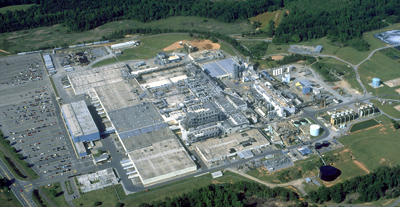





































 A smart decision to combine trade shows
A smart decision to combine trade shows Seton - Fine Automotive Leather
Seton - Fine Automotive Leather BP MAKES NON-FOOD NON-CELLULOSIC BIOFUEL INVESTMENT
BP MAKES NON-FOOD NON-CELLULOSIC BIOFUEL INVESTMENT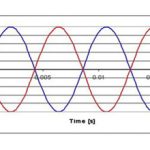 Trelleborg - Sound cancelling out noise
Trelleborg - Sound cancelling out noise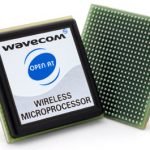 Wavecom - Preparing for eCall in Europe
Wavecom - Preparing for eCall in Europe

